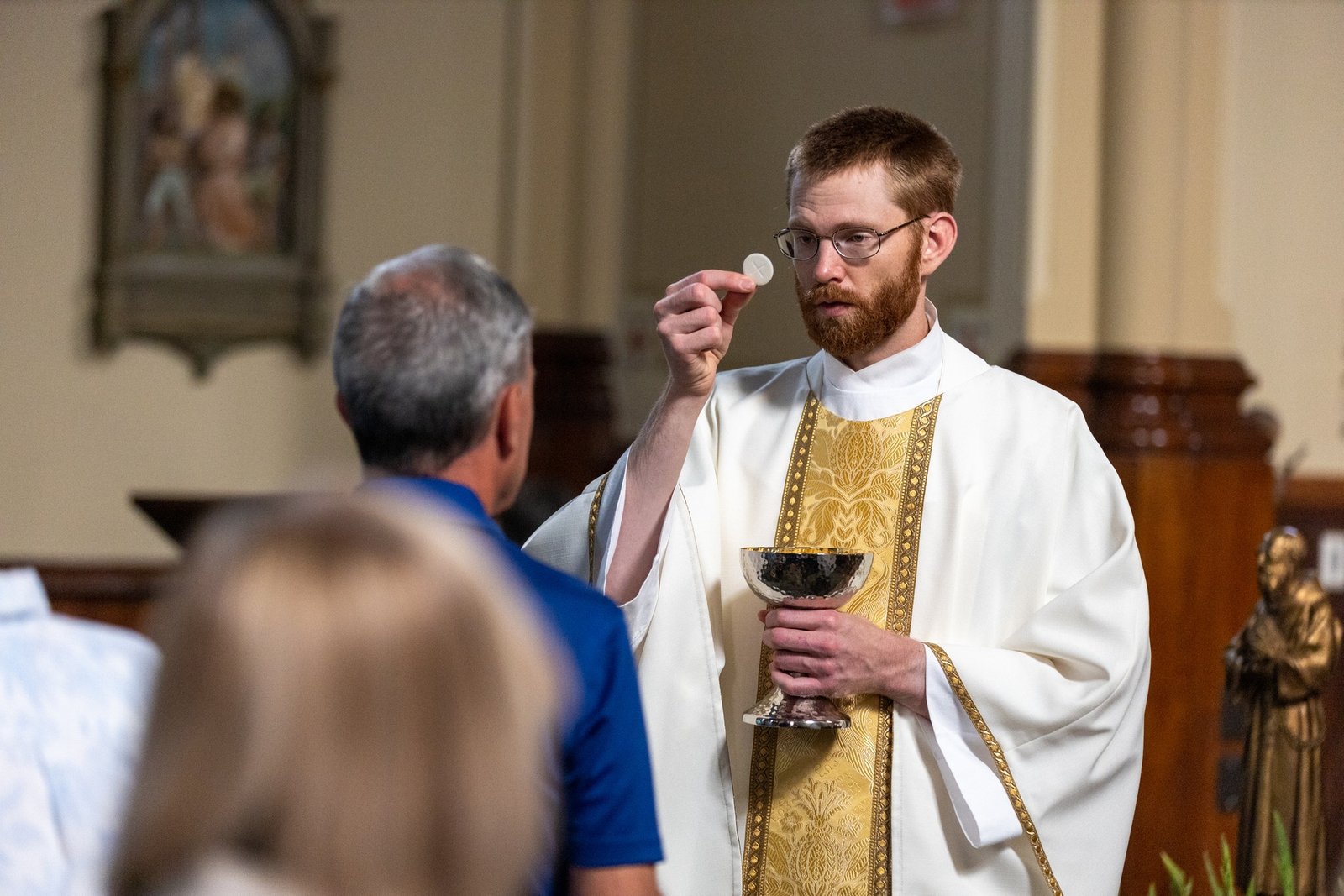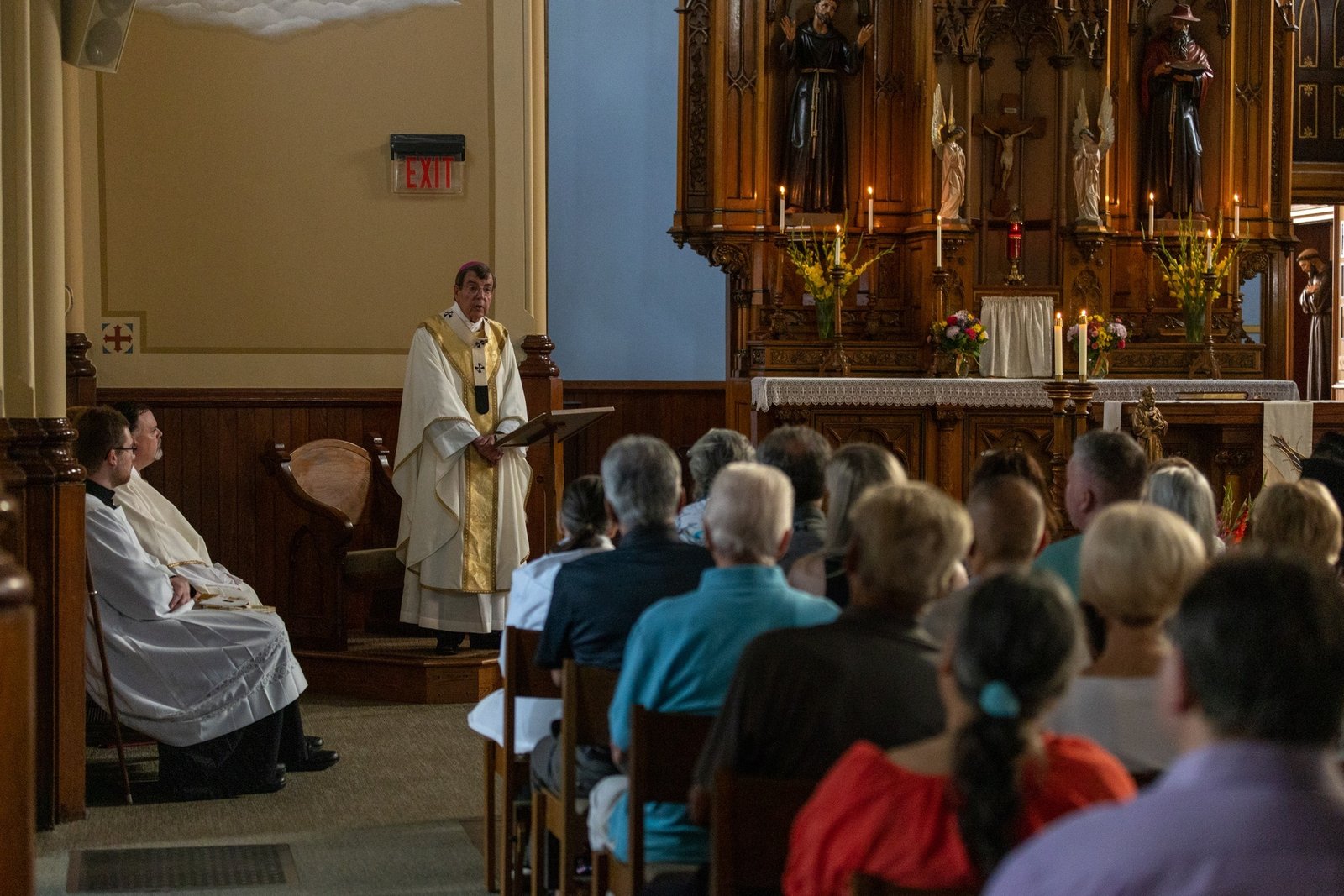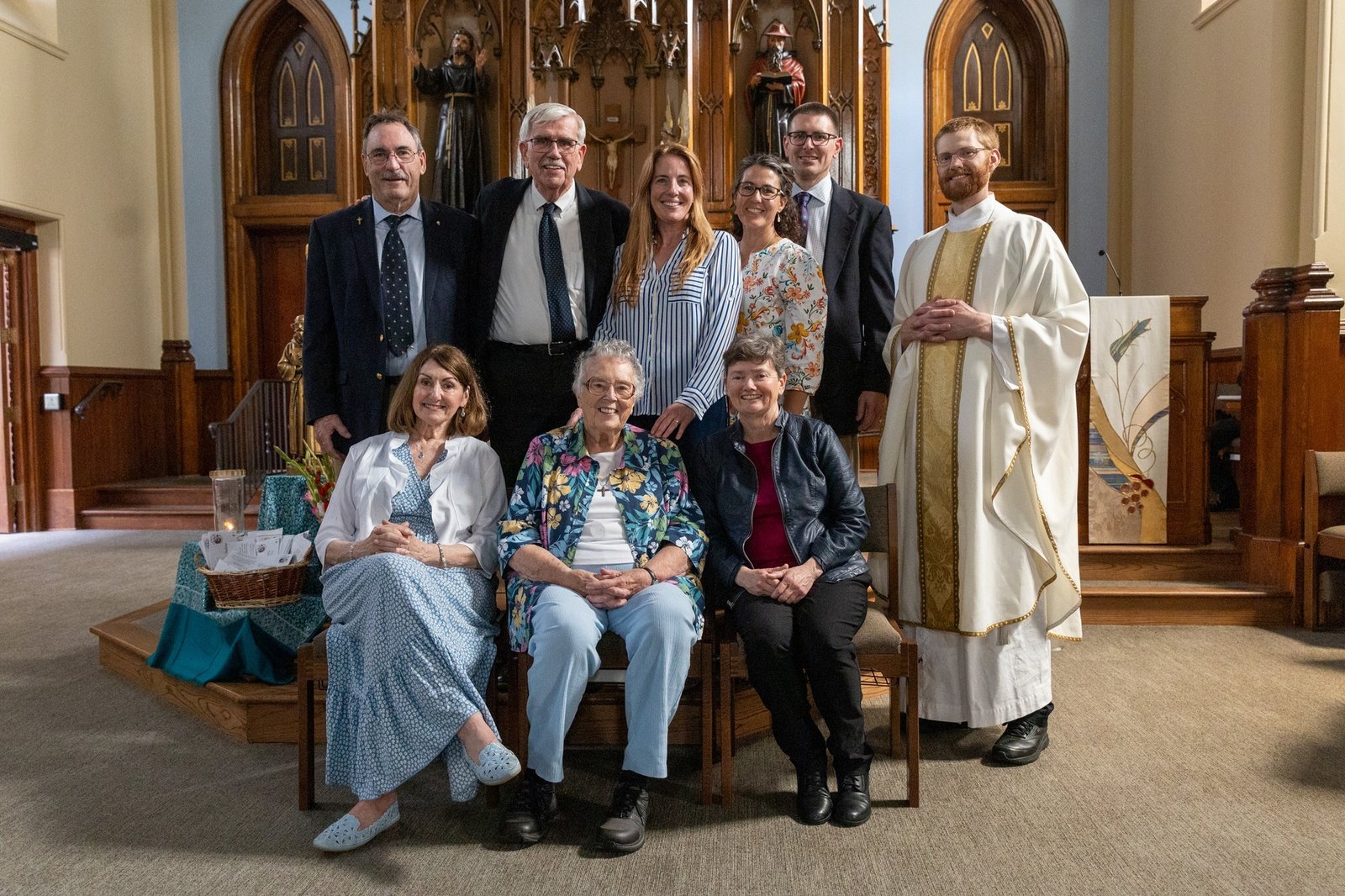Although not regarded as having great knowledge, we can learn from the wisdom of Blessed Solanus, archbishop says
DETROIT — As Catholics gathered for Sunday Mass on the feast of Detroit’s own Blessed Solanus Casey, they got a taste of what it might have been like to attend Mass when Fr. Solanus was born in 1870 among the Irish immigrant-run farms in Oak Grove, Wisconsin.
St. Bonaventure Monastery, where Blessed Solanus is buried, lost power July 30, and both Masses celebrated in the beloved friar's honor were done in the dark, lit only by a few candles and the light shining through the stained-glass windows.
Archbishop Allen H. Vigneron presided at the 9 a.m. Mass, using the same chalice Blessed Solanus used during his last earthly Mass. The archbishop was joined by newly ordained Fr. Caleb Cunningham of the Diocese of Baker, Oregon, a distant nephew of Blessed Solanus who bears a striking resemblance to the saint as a young man.
The readings of the day focused on wisdom, which should be distinguished from other types of knowledge, Archbishop Vigernon explained.

“The distinction I would set up is to create a contrast between wisdom and the knowledge that involves some command over a body of knowledge … something like science,” Archbishop Vigneron told the full chapel. “A person could have command over the knowledge of nuclear physics, or it could be in command over the scholarship involved in knowing Greek or Latin, but that’s not wisdom. You could be a great scholar, a great physicist and be very unwise.
“Wisdom means knowing and having a deep grasp over the basic order of the world and our place in the world so as to understand how to flourish,” Archbishop Vigneron said.
While Blessed Solanus may not have possessed great knowledge — he was denied ordination to the priesthood after six years in seminary and was eventually allowed to be a simplex priest after joining the Capuchin friars — he possessed divine wisdom, Archbishop Vigneron said.
“(What) he had was this divine wisdom, the wisdom that comes from being configured to the mind and heart of Jesus Christ,” Archbishop Vigneron said. “We look to him as an example of this Christian wisdom — this wisdom that says, ‘It is always better to be a servant than to be served; this wisdom that is always ready to imitate Christ Jesus in his service.’”

This type of wisdom might sometimes be viewed as foolish by the world, Archbishop Vigneron explained, but the wisest thing for a man or woman to do is to imitate Christ and do all for the love of God the Father.
“The wisest thing is to sell everything, to hazard everything, to put everything on the line for Jesus Christ, and to expect that it is by discipleship and by knowing him and allowing him … by giving ourselves to Him that we will flourish,” the archbishop said.
Archbishop Vigneron pointed to two of Fr. Solanus’s most famous sayings as examples of the wisdom we can glean from the saint. The first: “Blessed be God in all his designs,” and the second: “Give thanks to God ahead of time.”
“To say always, ‘Blessed be God in all his designs,’ that is the wisdom of Jesus Christ,” Archbishop Vigneron said. “The wisdom that says that God the Father is in control, and then everything that unfolds in our lives is a way for us to grow closer to Him.”

The second phrase intimately relates to the first, Archbishop Vigneron added.
“There isn’t anything that unfolds in our life that is not a place, a scope, an opportunity for giving God thanks,” Archbishop Vigneron said. “That is part of what it means that Jesus is our redeemer; that every moment in our lives, whether they’re moments of joy or sorrow, moments of triumph or defeat, even in moments of sin, of which we have repented, is a time to give God thanks ahead of time."











